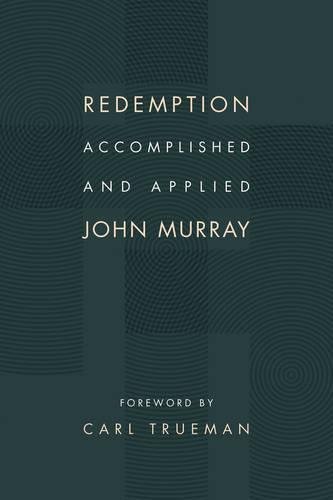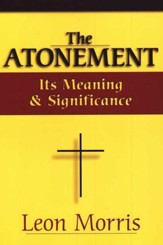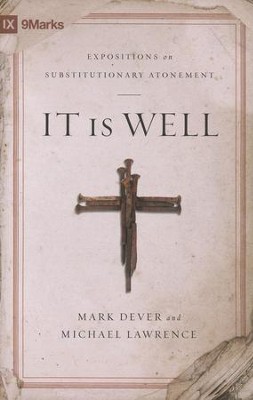Quotes about Jesus_Christ-Death-Redemption
The debt was so great, that while man alone owed it, only God could pay it.
Christ was offered twice; first in the temple, which is called His morning sacrifice; then on the cross, which is termed His evening sacrifice. In the one He was redeemed, in the other He did redeem.
A Puritan Golden Treasury, compiled by I.D.E. Thomas, by permission of Banner of Truth, Carlisle, PA. 2000, p. 31.
Just as the diamonds on a jeweler’s counter shine more brilliantly when set upon a dark velvet pad, so Christ’s redemptive work shines more brilliantly when contrasted with our sin and the consequent curse that was upon us.
Copied from The Gospel for Real Life by Jerry Bridges, © 2002, p. 86. Used by permission of NavPress – www.navpress.com. All rights reserved. Get this book!
When the Bible says that we are redeemed, it is saying we have been bought out of slavery, so we as Christians have been bought and brought out of slavery to sin. Christ’s death was the price paid for our freedom from sin. Christ’s death is how God has redeemed us from our slavery to sin.
Nine Marks of a Healthy Church, Crossway, 2000, p. 74. Get this book!
By His death on the Cross, Christ has become the Lamb that was slain for us, our Redeemer, the One who has made peace between us and God, who has taken our guilt on Himself, who has conquered our most deadly enemy and has assuaged the well-deserved wrath of God.
Nine Marks of a Healthy Church, Crossway, 2000, p. 75. Get this book!
Redemption comes from the marketplace where, in those days, slaves were purchased for a price. It speaks of the purchase of our salvation through the payment of a price for our sins… The New Testament also uses the related figure of ransom which refers to the price Jesus paid to purchase our salvation (Mark 10:45; 1 Tim. 2:6). The focus here is on the freedom we receive from the captivity of sin, through the price paid by Christ.
The Meaning of the Cross by Ajith Fernando taken from The Supremacy of Christ by Ajith Fernando, copyright 1995, Crossway Books, a division of Good News Publishers, Wheaton Illinois 60187, www.crosswaybooks.org, p. 134.
If you ask why God ordained the fall of man and the sinful state into which he would go, the answer is that God ordained sin so that we would know Him in the fullness of His revelation of Himself. If God had not ordained sin, we would know Him only as the Creator; because God has ordained sin we can know Him as the Redeemer.
Though it was His human nature that suffered the pains of physical death, it was His divine nature that gave His suffering its infinite value and dignity, so making it effective as a ransom for many.
Forsaken by Mark Dever and Michael Lawrence taken from It Is Well, by Mark Dever and Michael Lawrence, copyright 2010, Crossway Books, a division of Good News Publishers, Wheaton Illinois 60187, www.crosswaybooks.org, page 85.
Redemption is a greater work even than creation, and especially when we consider the way in which God has achieved it, even through the sending of His only Begotten Son into this world in all the marvel and the wonder and the miracle of the Incarnation, but above all in delivering Him up to the Death upon the Cross. This is the supreme thing – that sinful fallen man can be redeemed and restored, and ultimately the whole of creation also.
Spiritual Depression – Its Causes and its Cures, 1965, p. 93-94, Used by Permission from Elizabeth Catherwood (daughter). Get this book!
Redemption. This was promised in the Old Testament, but was fulfilled with the coming of Christ, fully God and fully man, who lived a sinless life and went obediently to suffer death on a cross, dying in our place. God saves us by accepting the substitutionary sacrifice of Christ as full payment for the penalty of sin, and He raised Christ from the dead on the third day, announcing to all the vindication and completion of the Son’s saving work. Salvation is declared to all who believe on His name and confess Him as Savior and Lord.
The Conviction to Lead, Bethany House Publishers, 2012, p. 41, Used by Permission.
Get this book!
Ultimately, the Lord of the harvest has showered us with His grace. Jesus is our kinsman-redeemer with the right to redeem us – made like us in every way, yet without sin (see Hebrews 4: 15). He has the resources to redeem us – possessing all authority over nature and nations, disease and demons, sin and Satan, suffering and death. Finally, He has the resolve to redeem us. His resolve drove Him to take responsibility for our sin, enduring the wrath of God that we deserve, so that through faith in Him, we might no longer be outcasts separated from God, but instead we might be called sons and daughters of God.
Taken from Counter Culture, Copyright © 2015 by David Platt. Used by permission. Website: Radical.net. Page 104.
If (a) the Son has come to do the will of the Father, and if (b) the will of the Father is that the Son should give eternal life to all whom the Father has given Him, and if (c) the Father didn’t give Him the world but only some out of the world, then the redemption accomplished by the Son is particular, not universal.
Shepherd’s Conference 2022, Triune Salvation: Why the Unity of the Trinity Demands a Definite Atonement.
The streets of heaven will be filled with former captives who, through no merit of their own, find themselves redeemed, forgiven, and free. Slaves to sin have become saints. No wonder we will sing a new song – a song of praise to the Redeemer who was slain (Revelation 5:9). We were slaves to sin, condemned to eternal separation from God. Jesus paid the price to redeem us, resulting in our freedom from slavery to sin and our rescue from the eternal consequences of that sin.
Scripture is quite clear that redemption is only possible “through His blood,” that is, by His death (Colossians 1:14).
The word redeem means “to buy out.” The term was used specifically in reference to the purchase of a slave’s freedom. The application of this term to Christ’s death on the cross is quite telling. If we are “redeemed,” then our prior condition was one of slavery. God has purchased our freedom, and we are no longer in bondage to sin or to the Old Testament law. This metaphorical use of “redemption” is the teaching of Galatians 3:13 and 4:5.
It give expression not merely to our sense that we have received salvation from Him, but also to our appreciation of what it cost Him to procure this salvation for us. It is the name specifically of the Christ of the cross. Whenever we pronounce it, the cross is placarded before our eyes and our hearts are filled with loving remembrance of not only that Christ has given us salvation, but that He paid a mighty price for it.
The doctrine of redemption by Jesus Christ is a glorious doctrine; it is the marrow and quintessence of the gospel, in which all a Christian’s comfort lies. Great was the work of creation, but greater the work of redemption; it cost more to redeem us than to make us; in the one there was but the speaking of a word, in the other the shedding of blood. The creation was but the work of God’s fingers (Psalm 8:3). Redemption is the work of His arm (Luke 1:51).


















